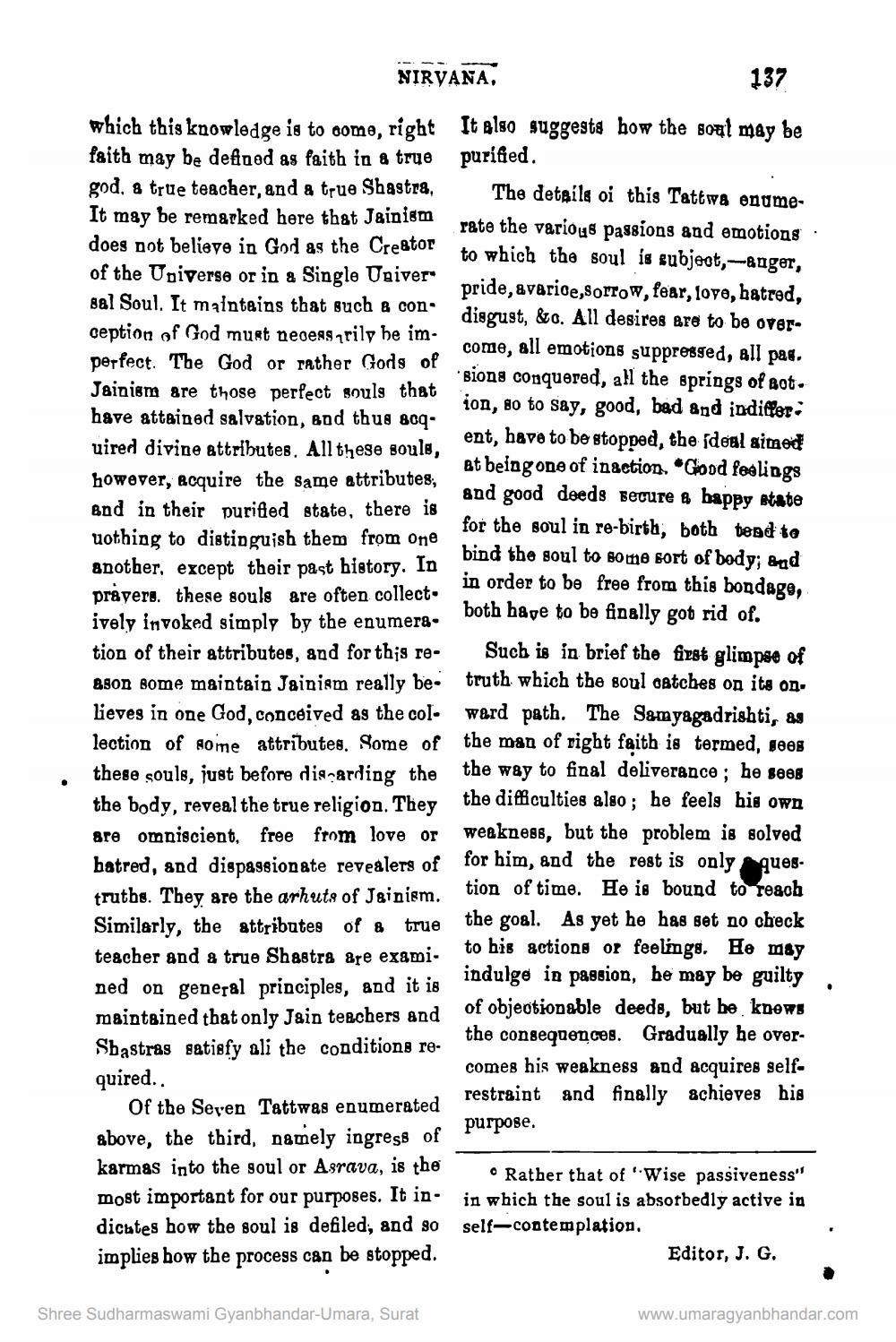________________
NIRVANA,
which this knowledge is to come, right faith may be defined as faith in a true god, a true teacher, and a true Shastra, It may be remarked here that Jainism does not believe in God as the Creator of the Universe or in a Single Univer sal Soul. It maintains that such a conception of God must necessarily be imperfect. The God or rather Gods of Jainism are those perfect souls that have attained salvation, and thus scquired divine attributes. All these souls, however, acquire the same attributes, and in their purified state, there is uothing to distinguish them from one another, except their past history. In prayers. these souls are often collect. ively invoked simply by the enumeration of their attributes, and for this reason some maintain Jainism really be lieves in one God, conceived as the collection of some attributes. Some of these souls, just before discarding the the body, reveal the true religion. They are omniscient, free from love or
hatred, and dispassionate revealers of truths. They are the arhuts of Jainism. Similarly, the attributes of a true teacher and a true Shastra are exami
ned on general principles, and it is maintained that only Jain teachers and Shastras satisfy ali the conditions required..
Of the Seven Tattwas enumerated above, the third, namely ingress of karmas into the soul or Asrava, is the most important for our purposes. It indicates how the soul is defiled, and so implies how the process can be stopped.
137
It also suggests how the soul may be purified.
Shree Sudharmaswami Gyanbhandar-Umara, Surat
The details oi this Tattwa enumerate the various passions and emotions to which the soul is subject,-anger, pride, avarice,sorrow, fear, love, hatred, disgust, &c. All desires are to be overcome, all emotions suppressed, all pas. sions conquered, all the springs of Bot. ion, so to say, good, bad and indiffer ent, have to be stopped, the ideal aimed at being one of inaction. Good feelings and good deeds secure a happy state for the soul in re-birth, both tend to bind the soul to some sort of body; and in order to be free from this bondage, both have to be finally got rid of.
Such is in brief the first glimpse of truth which the soul catches on its onward path. The Samyagadrishti, as the man of right faith is termed, sees the way to final deliverance; he sees the difficulties also; he feels his own weakness, but the problem is solved for him, and the rest is only question of time. He is bound to reach the goal. As yet he has set no check to his actions or feelings. He may indulge in passion, he may be guilty of objectionable deeds, but he knows the consequences. Gradually he overcomes his weakness and acquires selfrestraint and finally achieves his purpose.
• Rather that of "Wise passiveness" in which the soul is absorbedly active in self-contemplation.
Editor, J. G.
•
www.umaragyanbhandar.com




